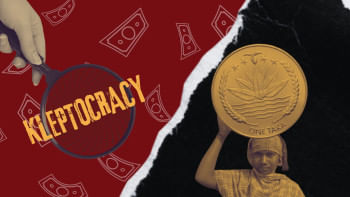How do we preserve our unity?

Leading up to August 5, the narrative of the July uprising has been quite straightforward in the public conscience. Every other group, regardless of their agenda, could unite against one common adversary. Following Sheikh Hasina's resignation, however, it adopted a much greyer tone. With the police force withdrawn at that time, the country reached a state of disorder. The students were very quick to respond to the situation; controlling the traffic, and attempting their best to maintain law and order.
Our first piece of controversy begins here with one group of people applauding the students and being sympathetic towards their errors, and another criticising their faults and general behaviour. The critics grew in number and intensity on August 15, when a group of students and general people prevented others from observing the death anniversary of Sheikh Mujibur Rahman. These groups allegedly checked the cell phones of pedestrians, raided hotel rooms, and prevented the press from carrying out their duties.
It cannot be contested that these acts were beyond the jurisdiction of students, yet a common response by many was—"How can you speak ill of the students after they have done so much for the country?" This is a deeply emotional sentiment following the recent tragedies.
However, if we are to prevent further divisions during this transitory phase, we mustn't develop opinions based on group identities. Each issue needs to be broken down to the individual level, detaching the unlawful acts from the group the offenders represent.
We have been successful in applying this model of thinking with the police force. The interim government's promise to identify and deliver swift justice to the offenders within the law enforcement agencies was sufficient for everyone to welcome them again. People were able to accept that all policemen should not be condemned because of the wrongdoings of a few. The alleged conspiracy of some Ansar recruits that transpired on August 25 has, understandably, damaged people's trust to some extent. But the idea that these acts are not representative of the Ansar force at large is being reverberated across the country.
In a similar vein, we should also realise that anyone with a student ID should not enjoy complete immunity from criticism just because students led a successful uprising. The individuals carrying out unlawful acts should be identified and held accountable without it damaging the reputation of all students.
Now that an unbiased judicial system is being restored, we can hold individuals who engaged in violence, corruption, abuse of power, money laundering, and a plethora of unlawful activities accountable and sentence them accordingly. Many legal cases are already being filed against hundreds of Awami League officials. In the midst of all this, if we continue to celebrate witch hunts, like the alleged stabbing of Jamiul Islam Himel of Pabna University of Science and Technology, is our demand for justice and reformation not being polluted into a call for vengeance? If this sentiment continues, people will spend sleepless nights fearful that any interaction with an Awami League member could be used against them to perpetrate violence.
This cannot be a path to a unified Bangladesh. It can only breed further division. The recent debacle with the cancellation of the remaining HSC examinations has also shown us there is little to gain and much to lose now from blocking roads and surrounding offices. These aggressive tactics are unnecessary when the relevant authorities are already willing to heed reasonable demands. Besides, the people protesting often fail to represent the whole group.
There is no alternative now to practicing patience like our chief adviser, Dr Muhammad Yunus eloquently put in his address on the eve of August 25. We need to put our faith in this new government and hope that they can serve us properly, and until they have had the time to deliver on their promises, it is incumbent upon us not to take the law into our own hands.
The devastating floods this past week have taken a lot from us, but it has also functioned as a catalyst for unifying our people once more. Let us not reduce it again by fighting amongst ourselves as we would not want these days to turn into cautionary tales in the pages of history like many revolutions before us.
Fahmid Mohtasin is a graduate of the Institute of Disaster Management and Vulnerability Studies at Dhaka University.
Views expressed in this article are the author's own.
Follow The Daily Star Opinion on Facebook for the latest opinions, commentaries and analyses by experts and professionals. To contribute your article or letter to The Daily Star Opinion, see our guidelines for submission.

 For all latest news, follow The Daily Star's Google News channel.
For all latest news, follow The Daily Star's Google News channel. 







Comments